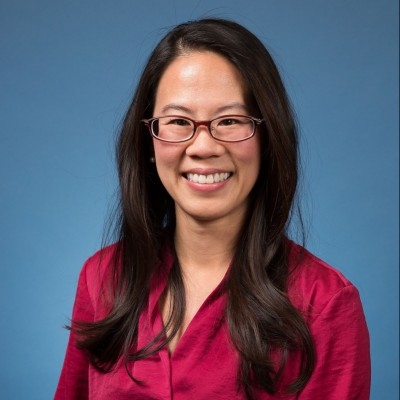"Formative assessment," a process where teachers and students use evidence to adjust teaching and learning to improve student achievement, is the focus of this year's University of Arkansas English as a Second Language Symposium set for Friday, Feb. 22.
The keynote speaker will be Sandy Chang of the Center for Research on Evaluation, Standards and Student Testing at the University of California, Los Angeles. Her specialty is assessment, standards implementation, and language and literacy development, with a focus on English language learners. She holds a Doctor of Philosophy in Human Development and Psychology from UCLA and a Master of Education in Language and Literacy from the Harvard Graduate School of Education.
The overall program, the 11th annual, is titled "Language Learning Progressions: Formative Assessment in Action." It runs 8 a.m. to 3:30 p.m. at the Hilton Garden Inn, 1325 N. Palak Drive in Fayetteville. A continental breakfast will be offered during sign-in beginning at 7:30.
Registration remains open. Before Friday, those interested can register online or email jmichel@uark.edu. At-the-door registration is available at 7:30 before the workshop begins, where only credit or debit cards will be accepted. The fee is $140 for professional educators and $70 for full-time students. Lunch is included. Teachers will be eligible for 6 hours of professional development credit.
"Formative assessments are strategies or tools used by the teacher to check student understanding in an informal way," said Diana Gonzales Worthen, principal investigator/director of Project REACH in the Department of Curriculum and Instruction. "Teachers can then observe students to gauge whether or not to adjust instruction or proceed to the next step in the lesson. Informal formative assessments are ongoing and especially helpful to English learners and culturally diverse students."
Chang will facilitate morning and afternoon interactive sessions.
"Keynoter ought to be in quotes, because what I will be doing is presenting a series of workshops, from presenting research on formative assessment and resources of use to teachers to how to apply this knowledge in a classroom context," Chang said in an interview. "There will be lecture but also videos and hands-on work."
This symposium will define the elements of formative assessment and contrast it with other assessment methods. Examples of formative assessment in action will be considered.
"Formative assessment is a systematic change in how teachers function. We tell teachers that 'assessment' is singular not plural because it is a process not a strategy. It's immediate, incremental adjustments. It's a systematic way to clear the gap of where [students] are and where they need to be," Chang said.
"It can be used for any set of students," she said, "but it's particularly helpful for English language learners because [besides the information the teacher is delivering] they're dealing in the moment with language and cultural differences. Teachers of English language learners need to understand that progression of learning."
Participants will be introduced to "language learning progressions," a study of features in academic language development and assessment for English learners.
The symposium includes a panel discussion, "Community Resources for Culturally and Linguistically Diverse Students and Families." Panelists include Kim Wright, director for stakeholder communication/family and community engagement for the Arkansas Department of Education in Little Rock; Eldon Alik, consul general for the Republic of the Marshall Islands' Springdale office; and Mireya Reith, executive director of Arkansas United, which offers services to immigrants and based in Springdale.
Graduate students in the Teaching English to Speakers of Other Languages degree program of the Department of Curriculum and Instruction will have a poster presentation.
Topics
Contacts
Ben Pollock, communications
College of Education and Health Professions
479-575-4554, bpollock@uark.edu
